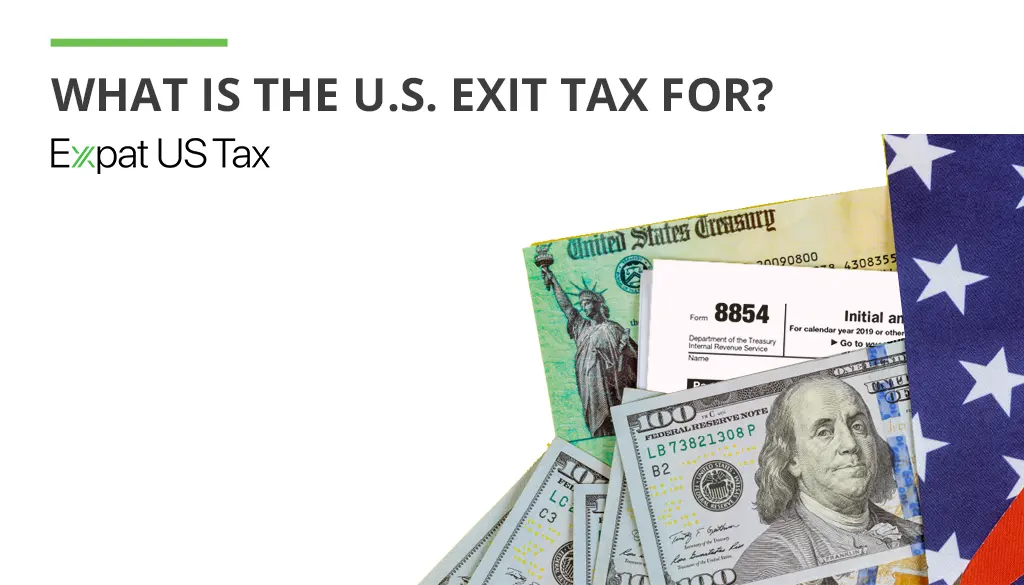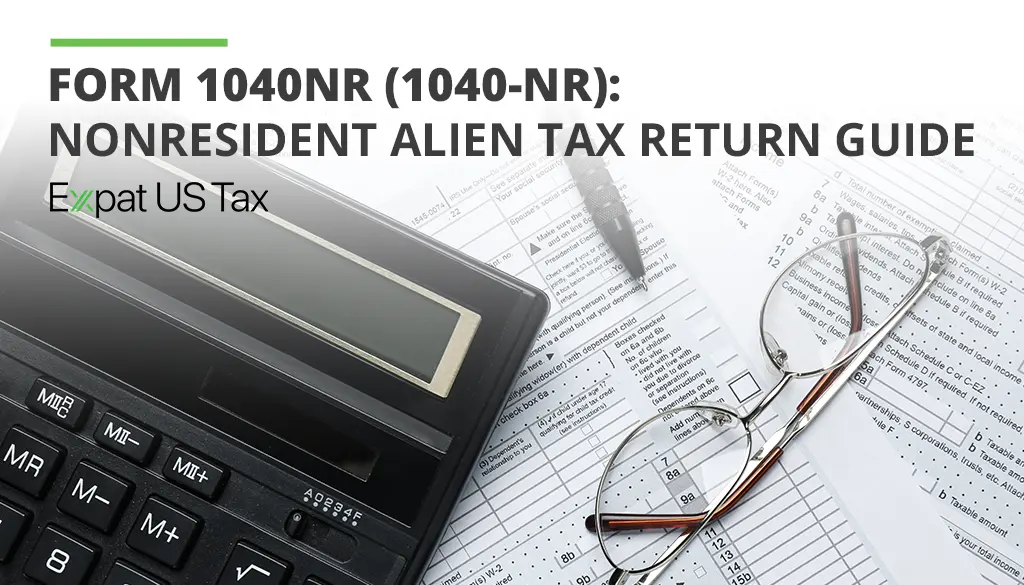What is the US Exit Tax


Rose-ann De Villa, an IRS Enrolled Agent and CPA with 15 years of expat tax experience, specializes in US tax preparation, tax planning, and tax advice for US citizens and Green Card holders living and working in the UK.
Rose-ann has been mentioned in the Daily Express UK news wherein she talked about Stimulus payments and Child Tax Credit refunds for US expats in the UK. *Schedule a consultation with Rose-ann today.
*30-minutes US$347.
Table of Contents
What is the US Exit Tax for?
The US exit tax is a one-time tax that some Americans must pay when giving up their citizenship or a long-term Green Card. The IRS applies it to people who meet certain thresholds or fail key requirements. These individuals are labeled “covered expatriates.”
In practice, the IRS acts as if you sold everything you own the day before you renounce and taxes the paper gains. US expats often see this as unfair. Even after years of contributing to their host country’s tax system, the US still imposes a final charge on their worldwide gains.
Who counts as a “Covered Expatriate” under the exit tax rules?
Not every US expat owes an exit tax. You only pay if the IRS labels you a covered expatriate.
Here’s how the tests look in 2025:
|
Test |
Trigger point |
2025 Figure/rule |
Notes |
|
Net worth test |
Worldwide net worth |
US$2,000,000 or more |
Fixed, not adjusted for inflation |
|
Tax liability test |
5-year average net US tax liability |
Above US$206,000 |
Adjusted annually |
|
Compliance test |
IRS Form 8854 certification |
Failure to prove 5 years of full compliance |
Non-filing alone makes you covered |
Important! Many expats don’t realize the compliance test is the trap. Even if you’re under US$2M and below US$206k, missing FBARs or FATCA forms can tip you into “covered” status.
How do expats file Form 8854 when they renounce?
You must attach it to your final US tax return (Form 1040 or 1040NR) for the year you expatriate. Form 8854 is the IRS’s way of officially recording your exit. Even if you aren’t covered, you still need to file, it’s how you certify those five clean years. Skipping this form can land you in covered status by default.
How is the exit tax calculated in 2025?
At its core, the exit tax isn’t a flat charge. It’s a calculation based on the idea that you “sold” all your assets the day before you expatriated. The IRS looks at your worldwide holdings, values them in US dollars, and then works out what the taxable gain would be.
Here’s the quick breakdown:
- Value everything in USD at fair market value.
- Subtract your cost basis to find the gain.
- Reduce the total by the US$890,000 exclusion (2025).
- Apply long-term US capital gains rates (usually 15–20% + surtaxes).
However, not every asset is handled the same way under the exit tax. While stocks or real estate usually fall under the “deemed sale” rules, others follow separate rules. Here’s how the IRS treats different asset types:
US exit tax rules by asset type:
|
Asset type |
Exit tax treatment |
Notes for expats |
|
Stocks & real estate |
Mark-to-market deemed sale |
Losses offset gains before exclusion |
|
IRAs |
Treated as fully distributed; taxed as income |
No early withdrawal penalty |
|
401(k)s & employer pensions |
Choose between 30% withholding on future US payments OR present-value inclusion now |
Election via Form W-8CE |
|
Foreign pensions (e.g., UK SIPP, Australian super) |
Varies by plan; often treated as deferred comp, may need treaty analysis |
Expats often need tailored advice |
|
Non-grantor trust interests |
Special withholding/recognition rules |
Complex, seek expert review |

Giving up your US citizenship?
Get expert tax advice today.
Do expats actually end up paying the exit tax?
It depends. Many expats are surprised that being “covered” doesn’t always equal a tax bill. Here are some examples:
- American in Australia with superannuation
Sarah, who lives in Sydney, has a large super fund. On paper, her net worth exceeds US$2M, so she’s covered. But once the US$890k exclusion and market downturn adjustments are applied, her actual exit tax liability is zero. - US expat in Dubai
Mark has no local capital gains tax to worry about, but the US still taxes his “deemed” gains when he renounces. Even though Dubai may not tax his property or investment growth at all, the IRS still requires him to calculate and pay US capital gains tax on those assets.
Important!: The exit tax rules apply worldwide, regardless of where you live or how your host country taxes assets.
Can expats legally reduce or avoid the exit tax?
Yes, but planning ahead is critical. Here are some ways to reduce or avoid the US exit tax:
- Shrink net worth: Gifting, donating, or restructuring debt to fall below $2M.
- Income timing: Spread out significant income events so your 5-year average stays under the line.
- Pick your moment: Renounce in a downturn or when exchange rates favor you. Green Card holders might exit before hitting 8 of 15 years.
- Catch-up compliance: Use Streamlined Filing (non-willful lapses) or Voluntary Disclosure (willful cases). FBAR and FATCA gaps are the most common reasons expats fail.
- Treaties and credits: In some cases, foreign tax credits offset part of the deemed tax, but this requires advance coordination.
What if you’re behind on US taxes before renouncing?
Falling behind doesn’t just mean penalties; it can make you into a “covered expatriate” even if you’re not wealthy. Fortunately, the IRS has amnesty programs for being behind on taxes:
- Streamlined Filing: File 3 years of tax returns + 6 years of FBARs. Penalty-free if your mistakes were non-willful.
- Voluntary Disclosure: For willful non-filers. Harsher, but usually safer than ignoring the IRS.
Important: Expats often learn about FBAR late. It’s one of the most common slip-ups, and the IRS uses it as leverage.
FAQ'S
What is the US exit tax exclusion for 2025?
It’s US$890,000. Subtract this from your deemed gains before applying tax.
What is the 2025 tax liability threshold for covered status?
How does the exit tax affect Americans living abroad?
Do I still owe exit tax if my country doesn’t tax capital gains?
How are retirement accounts like IRAs and pensions treated?
Does the exit tax apply to Green Card holders too?
Can I return to the US after renouncing?



